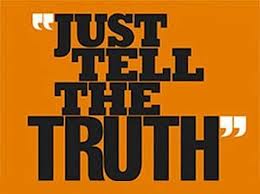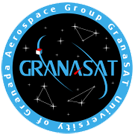These ideas were contributed by our developers and worldwide users. Some of them may be more o less rough. If you wish to submit a proposal based on these ideas, you may wish to contact the developers and find out more about the particular suggestion you’re looking at. Students are welcome to provide their own ideas for projects in collaboration with the GranaSAT developer community.
The major communication and coordination systems of the GranaSAT project are done by email. The latest news in our developments are publised in our web (http://granasat.ugr.es) All interested students must apply their proposals at granasat(at)ugr.es if selected they will be assigned two mentors (a primary and alternative mentor).
ESA Summer of Code in Space 2015 (SOCIS 2016) is a program run by the European Space Agency. It aims at offering student developers stipends to write code for various space-related open source projects. Through SOCIS, accepted student applicants are paired with a mentor or mentors from the participating projects, thus gaining exposure to real-world software development scenarios. In turn, the participating projects are able to more easily identify and bring in new developers.To learn more about the program, check out the timeline, visit the documentation center, or head to its mailing list.
If you are an eligible and interested student, read through the list and note the projects you are interested in. You, as the student programmer, then submit a proposal to ESA using the SOCIS 2016 website. The application form will be open until May 15. We recommend you to submit your application early. By doing so, it will be given a greater share of attention than is possible for applications submitted at the last minute.
You might submit a proposal following the guidelines below, or you might want to adapt it. Changes to the proposal could include:
- You think the project as suggested is too large and you can only feasibly complete part of it; if so, make sure your proposal covers a reasonable subset of the functionality (that is, something which is useful without the rest of the project being implemented).
- You think the project as suggested is too small; in this case you might want to extend the idea, combine projects, etc.
- You like the basic idea of the project but it is not such a good fit for the skills that you have; in this case please feel free to suggest an alternative, but try to remember that the idea is for the software to be useful for its existing and potential users.
Your proposal should include the following: your project proposal, why you would like to execute on this particular project, and the reason you are the best individual to do so. Your proposal should also include details of your academic, industry, and/or open source development experience, and other details as you see fit. An explanation of your development methodology and schedule is a good idea, as well. It is always helpful to include your contact information, as it will not be automatically shared with your would-be mentors as part of the proposal process.
Hereafter we list, in no particular order, some proposals for projects to be carried out by the students participating in SOCIS 2016. This is by no means a closed list, so the students can feel free to propose alternative activities related to the project.
Our 2016 proposal for students are focused to develop open software and hardware to be used by school and high school students and teachers to promote the space science teaching.
We have an email distribution list granasat@freelists.org for student and mentors usage. You can also use our SOCIS 2016 forum post your messages and share your improvements and troubles to the development community.
Once the ESA has selected our project for 20156 SOCIS, we want to make easier for you the Application fill in. We now have a transparent application scheme where you see for what you get points. And you get points for what we expect of you. We tried to find a good compromise between the fundamental skills we want to see, and also give newcomers and space students a fair chance. And as you can see, there is also a way to surprise us with your creativity. We like to be convinced with working prototypes and good community interaction. Overall, we BELIEVE everyone can do that and we mentors will help you help yourself.
When you will ask us afterwards, we will also take time to discuss with you how you ranked. This could help you improve for next year’s SOCIS.
The GranaSAT rating for 2015 Socis is:
Baseline:
5 pts Communicated with us org mentors (via their emails below)?
5 pts Communicated with the community (via email list)?
5 pts Does your application contain a motivation letter (some examples)? Tell us why you like us and our projects! And prove that you know who we are and what we do! ![]() (1 page is okay)
(1 page is okay)
5 pts Do you reference projects (software or hardware) you coded WITH links to repos or provided code?
5 pts Do you provide all demanded ways of contact (email, skype, telegram, mobile/phone, and twitter, chat and/or tumblr if available)?
3 pts Do you add a preliminary project plan (before, during, after SOCIS)?
3 pts Do you state which project you are applying for and why you think you can do that?
3 pts Do you have time for SOCIS? This is a paid job! State that you have time in your motivation letter, and list other commitments!
1 pts Only applied via the SOCIS 2016 page (please don’t send it directly to us!)
1 pts Added a link to ALL your application files to a cloud hoster like github or dropbox? (easy points! ![]() )
)
0 pts Be honest! 
Optional:
5 pts Did you do push code to the existing code or hardware project ? Or did a bugfix?
10 pts Do you have an aerospace background and did you reference it in your application?
15 pts Wild space. Be creative, impress us! 🙂
5 pts Completed CV (1-2 pages optimal!)
2 pts If you select on of the hardware related projects, do you have (access to) it?
Please try to follow this list to get the maximum number of points! If something is not clear, ask us :).
Software Projects
RTL_FM Decoding software for NOAA images
- Description Supply an overview of the observation data/telemetry/beacon decoding via AX25 demodulation (cubesat, ISS, etc.)
- Skills needed: C, RTLSDR library, NOAA APT signal Decoding
- Expected results: Integrate decoding option in command line and optimized audio file for externa image decoder. Olso Linux version testing for including into Ground Station dashboard
3D magnetic simulator for Cubesat missions
- Description Design and assist implementing a transition of the Granasat 3D Magnetic Simulator that controls the current sources connected to Helmholtz Coils used to emulate the Earth magnetic field that the cubesat will find during its orbit.
- Skills needed Python, RS232,
- Expected results Integrate orbit propagation, TLE downloading(editing) and current sources controlling.
GranaSAT Groundstation Control Dashboard
- Description: Development of a web based dashboard to control all the functionalities of the hardware deployed at GranaSAT Groundstation in order to control the satellite mission telemetry/telecontrol procedures remotly.
- Skills needed: Hardware communication protocols: I2C, UART, RS232. Audio processing: resampling, filtering, decoding, modulating. Full stack web development: AngularJS, Bootstrap, NodeJS, EspressJS, MySQL, Git…
- Expected results: Implement improvements at the current alpha version of the dashboard:
* Time local/UTC management
* Implement hardware control commands on the client side
* Detailed info about satellite passes
* Abstracting the dashboard to any groundstation: modularity
* Intelligent rotors movement control
* Selectable audio decoding for an scheduled satellite pass
* Integration of the SDR systems in the reception options
* User management

